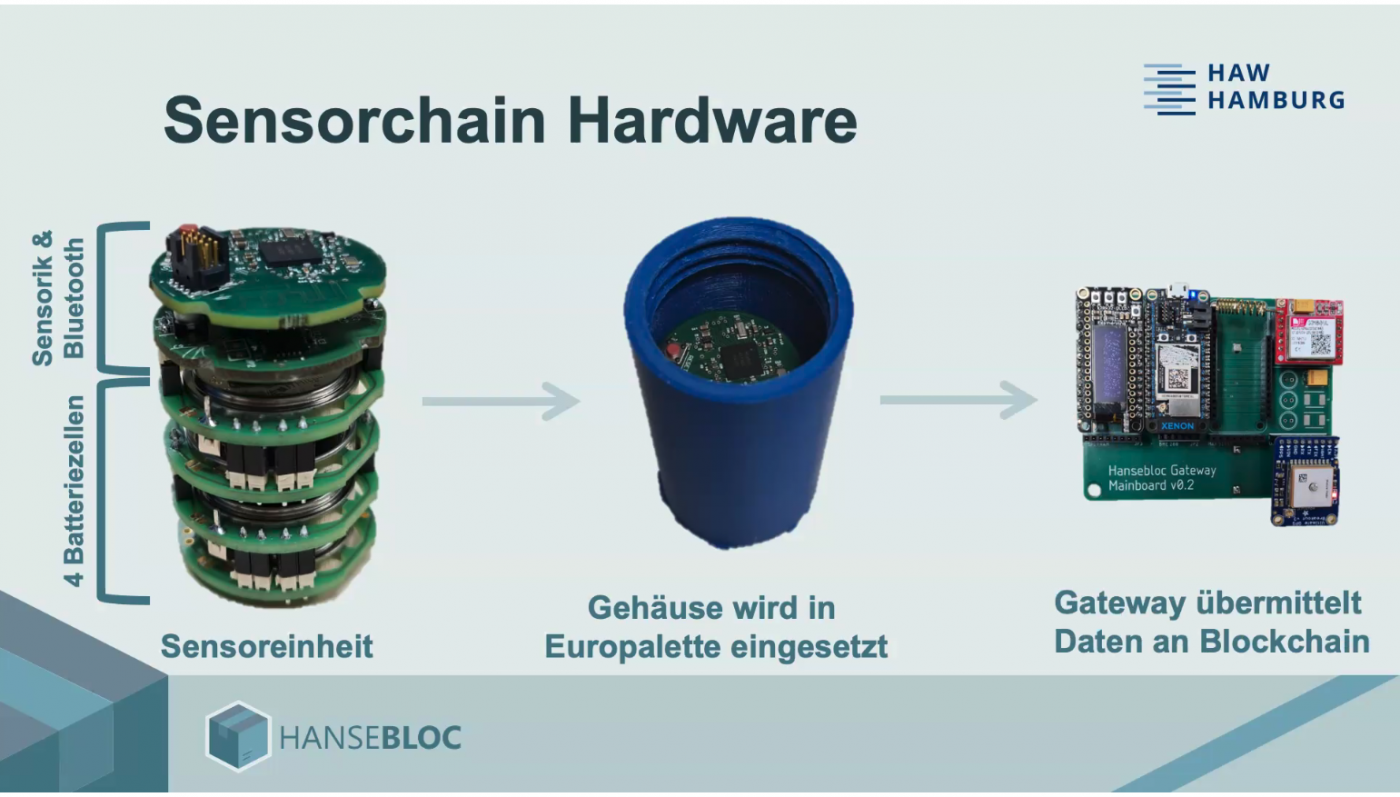Around 70 participants attended HANSEBLOC's closing virtual conference during which initial results and a foretaste of coming events were presented. Dr. Oliver Pieper, who is responsible for innovation at BMBF, hailed the project as a "prime example" of how clusters such as the Logistics Initiative Hamburg make an important contribution to Germany as a centre of innovation. "Launched in April 2018, HANSEBLOC was a pioneer even then," Pieper added. The German government's blockchain strategy was not adopted until late in 2019. "I am eager to see how the project develops over the next few years."
Distributed ledger or blockchain technology is on a "productivity plateau" now that the hype has been deflated, according to the "Hype Cycle for Blockchain Technologies 2020" study by Gartner research and consulting. At present, the main challenge lies in identifying, implementing and testing useful distributed ledger technology (DLT) applications. It holds enormous potential for the logistics industry, which is not yet fully digitized as DLT is considered transparent, forgery-proof and decentralized. The joint North German project Hanseatische Blockchain-Innovationen für Logistik und Supply-Chain-Manangement (HANSEBLOC) managed by the Logistics Initiative Hamburg, is further along. The near three-year project, which has received EUR 1.9 million in funds from the German Ministry of Education and Research (BMBF) and involves ten SMEs, is coming to an end this month. Around 90 meetings have been held and a prototype produced.
Logistics cluster as a catalyst of innovation
Goal: forgery-proof documentation of transport data
The North German consortium consisting of four IT service providers, four logistics experts, the Hamburg University of Applied Sciences (HAW Hamburg) and Kühne Logistics University gGmbH (KLU) had set itself the goal of developing the HANSEBLOC system in a logistics setting and with infrastructure and a design counter to that of the platform economy, i.e. without intermediaries who dominate the market. Dr. Jan Rode, Project Manager of Start-ups & Networks at the Logistics Initiative Hamburg, had presented the project. Forgery-proof documentation of transport data and risk transfer on the blockchain should raise security and generate real-time data and automating processes. Controlling the release of data from the start is crucial. Stringent data protection requirements on sensitive data and varying IT know-how in the logistics companies are among the challenges.
Prototype suitable for aviation and shipping industry
In early October, the prototype underwent tests in real conditions the results of which were evaluated by the Kühne Logistics University. Thomas Twenhöven, a PhD candidate at KLU, surmised: "The blockchain can be used practically and the test clearly revealed its advantages." Although the platform and app had been designed in terms of road haulage, it can also be used for air and sea freight. That is because "the blockchain in HANSEBLOC manages digitally-twinned transport processes, i.e. it maps all relevant data in real time," said Kevin Westphal, a representative of Consider IT GmbH. No details of logistics processes can be selected making for one of the main advantages of a blockchain solution. Data such as place, time, goods and responsible persons are available only as checksums.

Sensor chain - next step for Hansebloc
The blockchain solution can already map quite complex transport processes. Hopes are now high that work on bringing HANSEBLOC to market maturity can continue when the project officially ends in December. Then, HANSEBLOC could become a marketplace with services and payment services. But for the moment, the focus remains on the sensor chain. A sensor network connected to the blockchain will undergo tests in early 2021. Sensors developed at HAW Hamburg, which are used e.g. in euro-pallets, allow users to track transports and monitor cold chains. An alarm is triggered in case of deviations, for instance, if a previously defined temperature in a so-called smart contract deviates by 15 degrees. Third-party providers are to be linked to HANSEBLOC in future (microservices), which could include customs and authorities, insurance companies or freight exchanges.
sb/pb/
Sources and further information
Hansebloc
The HANSEBLOC project is being driven by ten north German partners from Hamburg and Bremen, who have joined forces in the Logistics Initiative Hamburg network. Its members include four logistics service providers (Kroop & Co. Transport + Logistik GmbH, Shot Logistics GmbH, Sovereign Speed GmbH & Transimeksa Intermodal GmbH), four IT service providers and blockchain experts (Chainstep GmbH, Consider it GmbH, Hec GmbH & Itemis AG) as well as two universities (HAW Hamburg and Kühne Logistics University). The Logistics Initiative Hamburg has co-ordinated the project from April 2018 to December 2020 with a volume of some EUR 3.1 million so far. The BMBF is putting around EUR 1.8 million towards research into the potential of blockchain innovations for mid-sized logistics companies. The BMBF's "KMU-NetC" programme funds research and development projects by SMEs in high-performance clusters to better equip such companies for the future.
Blockchain technology
A blockchain is a system in which a record of transactions made in bitcoin or another cryptocurrency are maintained across several computers that are linked in a peer-to-peer network. The database is expanded chronologically in a linear fashion, similar to a chain. New elements are constantly added at the lower end - hence the term "blockchain". When one block is complete, the next one is created. Each block contains a checksum of the previous block to protect the technology from manipulation. Thus, the blockchain is part of distributed ledger technology.
More
Similar articles

"Blockchain My Art" wins Music WorX prize for founders

Blockchain driving Industry 4.0 in Hamburg

Hanse Digital - blockchain based, trustworthy platform
